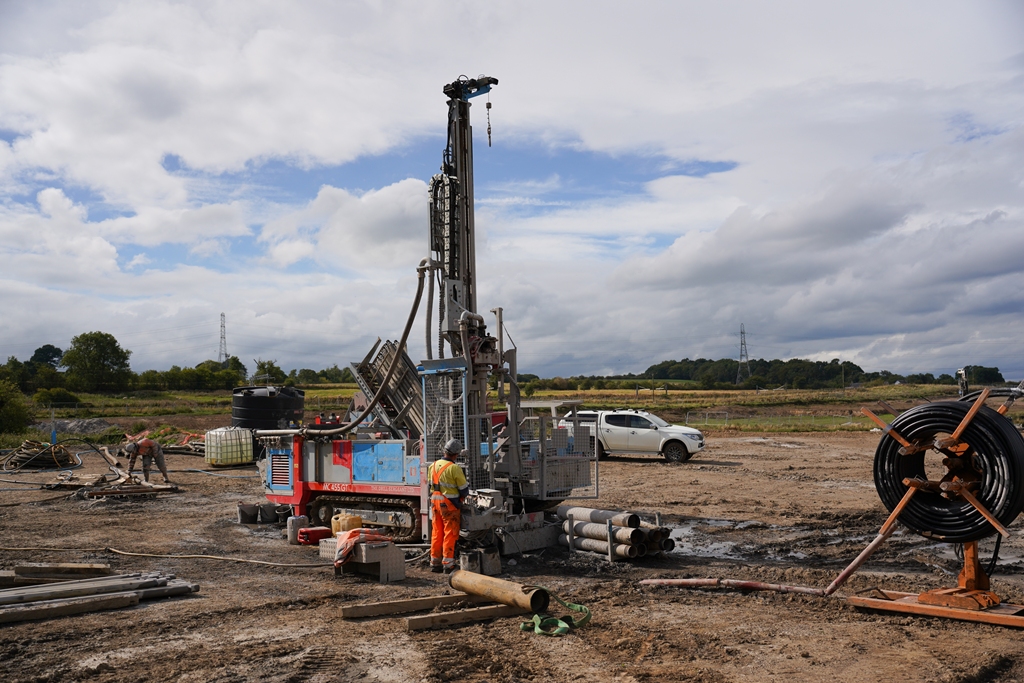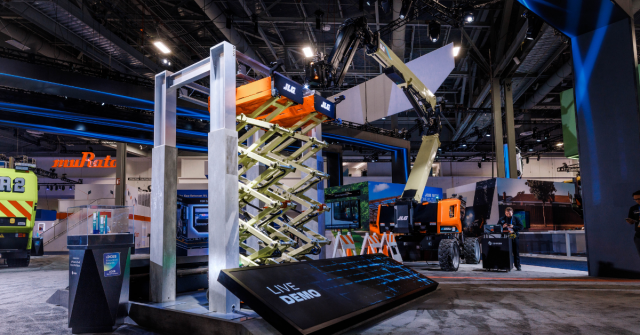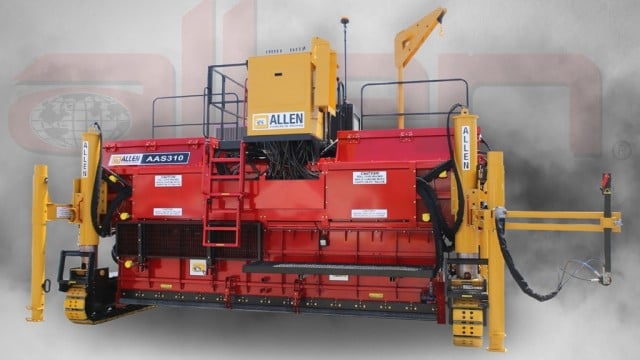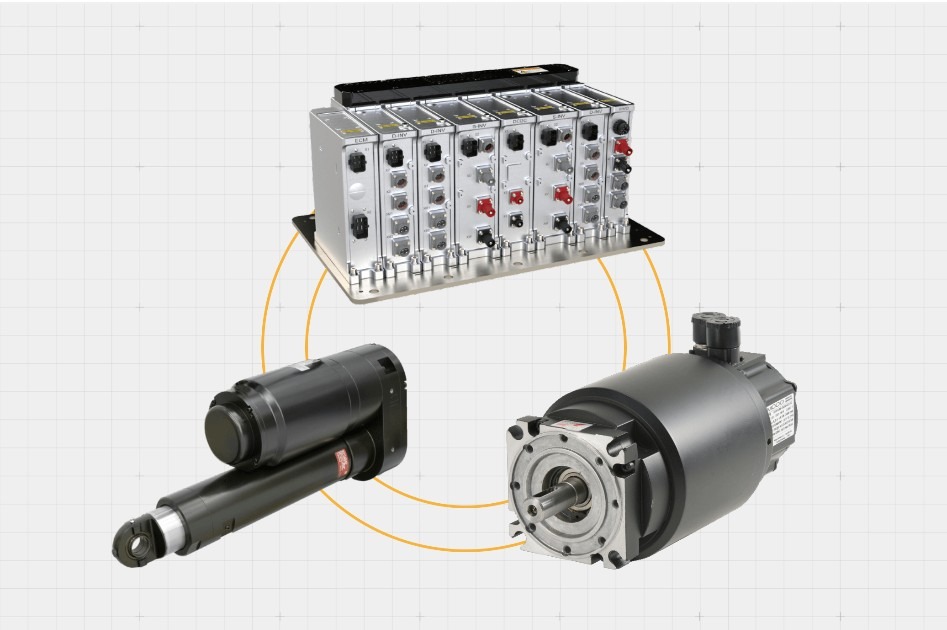Strabag's innovative technology for fully autonomous asphalt paving tested successfully
After 15 companies and research institutes worked on the project for around three years, the innovative solutions intend to contribute to sustainably improving safety, efficiency & cost-effectiveness in road construction and maintenance. www.strabag.com On October 1, 2024, a window to the future of road construction opened on the A9 motorway between Graz and the border with Slovenia. Fully autonomous asphalt paving and self-driving barrier pylons with object recognition: As part of ongoing renovation work on the A9, the STRABAG competence center TPA and its partners in the EU-wide research project InfraROB (9/21–3/25) have successfully tested part of their newly developed automation technology in practice. Overall, the innovative solutions are intended to contribute to sustainably improving safety, efficiency and cost-effectiveness in the construction of roads and their maintenance. A total of 15 companies and research institutes from eight countries have been working on this for around three years and spread across five InfraROB sub-projects under the leadership of the Spanish University of Vigo. Improving occupational safety and health protection A fully autonomous paver has paved the asphalt completely automatically on the 180-meter-long test section near Spielfeld - implementation and logistics were coordinated by a STRABAG team from Graz; the motorway operator and InfraROB partner ASFINAG provided the demonstration section. The TPA and its three German partners in InfraRoB sub-project 1 have thus achieved their central goal: the automatic control system that has now been developed is the missing piece for fully autonomous asphalt paving; it complements the innovative measurement and sensor technology that MOBA AG, TH Köln, TU Darmstadt and TPA have already successfully brought to the road in the German research project, "Robot - Road Construction 4.0". The automation of asphalt paving can sustainably improve occupational safety and health protection on road construction sites, emphasizes Sebastian Czaja, head of the TPA group PSS (process stability in road construction): "In the future, paving personnel will increasingly take on controller tasks. It can therefore work at a greater distance from the flow of traffic and is therefore less exposed to the fumes and aerosols during installation.” Sensor cable automatically integrated into the asphalt surface For autonomous control, MOBA (Mobile Automation) AG has developed a module that is connected directly to the digital CAN bus interface of the asphalt paver and feeds the machine with the target data for the paving section. Object recognition sensors and satellite navigation (GNSS) keep the paver dynamically on the right course during paving. Second innovation from InfraROB sub-project 1: Using a newly developed paver attachment, a sensor-equipped fiber optic cable (FOS cable) was successfully integrated into the surface layer directly during asphalt paving on the A 9 section. The installed temperature and motion sensors provide information about the load on the asphalt surface during operation. This data can be used in the future for inventory monitoring for road maintenance. Mobile robots take over barriers and markings Innovative robotics from the InfraROB project could automate further work steps on road construction sites in the future and thus significantly reduce the risk of accidents for staff and road users. Mobile safety cone robots took over the closure of the test track: Coordinated and networked via a drone (RPAS), a swarm of autonomously driving pylons (cone robots) with object recognition sensors ensured a safe distance from the flowing traffic (subproject 4). Following the asphalt paving, small autonomous three-wheeled robots with paint tanks will also mark the road at the end of October (subproject 2). A similarly constructed mobile robot with a 3D printing head was developed in the InfraROB subproject for road maintenance: In the future, it will use its 3D printing head to autonomously repair potholes and cracks using a cold asphalt mixture. Modular prefabrication is intended to improve the economic efficiency of road construction projects: The InfraROB partners in subproject 3 have developed multifunctional protective wall modules that efficiently combine a guard rail, gutter, curb and rainwater channel in an all-in-one precast concrete component. The research project also developed models showing how the InfraROB solutions could be integrated into the road maintenance systems (PMS) and traffic management systems (TMS) to improve work and traffic safety (sub-project 5). "The importance and future of InfraROB automation technology is enormous from a user perspective. These technologies not only reduce the physical strain on workers and thus reduce the risk of accidents, but also continuously record important parameters for quality assurance that are particularly interesting for road operators," said Kristina Wittmann, road su

After 15 companies and research institutes worked on the project for around three years, the innovative solutions intend to contribute to sustainably improving safety, efficiency & cost-effectiveness in road construction and maintenance.
www.strabag.com

On October 1, 2024, a window to the future of road construction opened on the A9 motorway between Graz and the border with Slovenia. Fully autonomous asphalt paving and self-driving barrier pylons with object recognition: As part of ongoing renovation work on the A9, the STRABAG competence center TPA and its partners in the EU-wide research project InfraROB (9/21–3/25) have successfully tested part of their newly developed automation technology in practice. Overall, the innovative solutions are intended to contribute to sustainably improving safety, efficiency and cost-effectiveness in the construction of roads and their maintenance. A total of 15 companies and research institutes from eight countries have been working on this for around three years and spread across five InfraROB sub-projects under the leadership of the Spanish University of Vigo.
Improving occupational safety and health protection
A fully autonomous paver has paved the asphalt completely automatically on the 180-meter-long test section near Spielfeld - implementation and logistics were coordinated by a STRABAG team from Graz; the motorway operator and InfraROB partner ASFINAG provided the demonstration section.
The TPA and its three German partners in InfraRoB sub-project 1 have thus achieved their central goal: the automatic control system that has now been developed is the missing piece for fully autonomous asphalt paving; it complements the innovative measurement and sensor technology that MOBA AG, TH Köln, TU Darmstadt and TPA have already successfully brought to the road in the German research project, "Robot - Road Construction 4.0".
The automation of asphalt paving can sustainably improve occupational safety and health protection on road construction sites, emphasizes Sebastian Czaja, head of the TPA group PSS (process stability in road construction): "In the future, paving personnel will increasingly take on controller tasks. It can therefore work at a greater distance from the flow of traffic and is therefore less exposed to the fumes and aerosols during installation.”

Sensor cable automatically integrated into the asphalt surface
For autonomous control, MOBA (Mobile Automation) AG has developed a module that is connected directly to the digital CAN bus interface of the asphalt paver and feeds the machine with the target data for the paving section. Object recognition sensors and satellite navigation (GNSS) keep the paver dynamically on the right course during paving.
Second innovation from InfraROB sub-project 1: Using a newly developed paver attachment, a sensor-equipped fiber optic cable (FOS cable) was successfully integrated into the surface layer directly during asphalt paving on the A 9 section. The installed temperature and motion sensors provide information about the load on the asphalt surface during operation. This data can be used in the future for inventory monitoring for road maintenance.
Mobile robots take over barriers and markings
Innovative robotics from the InfraROB project could automate further work steps on road construction sites in the future and thus significantly reduce the risk of accidents for staff and road users. Mobile safety cone robots took over the closure of the test track: Coordinated and networked via a drone (RPAS), a swarm of autonomously driving pylons (cone robots) with object recognition sensors ensured a safe distance from the flowing traffic (subproject 4). Following the asphalt paving, small autonomous three-wheeled robots with paint tanks will also mark the road at the end of October (subproject 2).
A similarly constructed mobile robot with a 3D printing head was developed in the InfraROB subproject for road maintenance: In the future, it will use its 3D printing head to autonomously repair potholes and cracks using a cold asphalt mixture. Modular prefabrication is intended to improve the economic efficiency of road construction projects: The InfraROB partners in subproject 3 have developed multifunctional protective wall modules that efficiently combine a guard rail, gutter, curb and rainwater channel in an all-in-one precast concrete component. The research project also developed models showing how the InfraROB solutions could be integrated into the road maintenance systems (PMS) and traffic management systems (TMS) to improve work and traffic safety (sub-project 5).
"The importance and future of InfraROB automation technology is enormous from a user perspective. These technologies not only reduce the physical strain on workers and thus reduce the risk of accidents, but also continuously record important parameters for quality assurance that are particularly interesting for road operators," said Kristina Wittmann, road surface expert at ASFINAG.
www.strabag.com
Powered by
Induportals Media Publishing

 machineryasia
machineryasia 
![[Job Story] Two Liebherr STS Container Cranes Dismantled by Liebherr telescopic Cranes in Casablanca](https://www.heavyquipmag.com/wp-content/uploads/2026/02/liebherr-ltm-1400-7-1-lift-300dpi.jpg)







